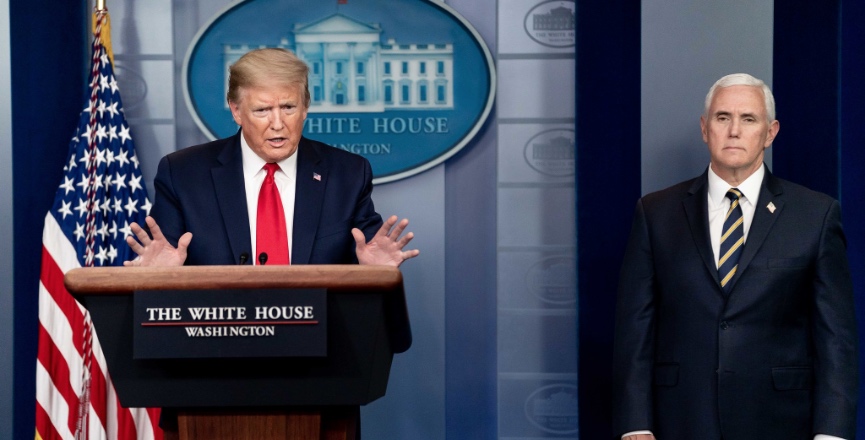There have been many sources of conflict between Canada and the U.S. over the past century and a quarter, going back to the 1903 resolution — in the U.S.’s favour — of the Alaska boundary dispute.
After the First World War, Canada signed on to the League of Nations, while the isolationist U.S. spurned it — even though it had been the brainchild of U.S. president Woodrow Wilson.
In 1939, Canada declared war on Hitler’s Germany, mere days after Britain and France did. The Americans remained almost truculently neutral. They only belatedly joined the fight when the Japanese attacked them, in 1941.
In the late 1950s and early 1960s, Canadian prime minister John Diefenbaker and U.S. president John F. Kennedy had a testy relationship, aggravated by Canada’s refusal to join the U.S.-dominated Organization of American States and to accept nuclear weapons on Canadian soil, under American supervision and control.
Diefenbaker’s successor, Lester Pearson, got on famously with Kennedy, but not at all with his successor, Lyndon Johnson. Prior to a scheduled leaders’ meeting in Washington, Pearson publicly, if guardedly, criticized the American war in Vietnam, infuriating the mercurial U.S. president. “You pissed on my rug!” Johnson told Pearson.
In the early 1980s, the current prime minister’s father, Pierre Trudeau, irritated the belligerent right-wing Ronald Reagan regime in the U.S. with his worldwide campaign for peace.
By contrast, Brian Mulroney, the first Canadian Conservative prime minister in a generation, and Reagan were great friends. Nonetheless, Mulroney managed to annoy his American pal when he defied Reagan’s even better friend, Britain’s Margaret Thatcher, by siding with the non-white majority in the Commonwealth to push for sanctions against Apartheid-era South Africa.
Finally, in the early 2000s, Jean Chrétien did not endear himself to George W. Bush when the Canadian government chose, very quickly, not to take part in the U.S.-led invasion of Iraq. And when journalist Bob Fife quoted Chrétien’s press secretary as describing Bush as “a dummy” it made matters only worse.
Throughout this time, however, the Canadian government has never before had to solemnly warn Canadians to ignore a sitting U.S president’s health advice. The Canadian federal health department, Health Canada, did just that on Saturday, April 25.
It issued a blunt and stern advisory to all Canadians, entitled: “Chloroquine and hydroxychloroquine can have serious side effects. These drugs should be used only under the supervision of a physician.”
Will Trump label Health Canada as ‘fake news’?
Health Canada expresses deep concern that “some people may be directly buying and using chloroquine and hydroxychloroquine to prevent or treat COVID-19 without a prescription.”
A good deal of that business is no doubt spurred by Donald Trump’s insistent touting of these drugs. The U.S. president went so far as to excoriate what he calls the “fake news” for expressing reservations about the wisdom of a politician recommending unproven therapeutics. Will he now say Health Canada trucks in fake news, too?
There are clinical trials taking place right now, in the U.S., in Canada and elsewhere, to assess the effectiveness — and potential side effects — of chloroquine and related compounds as treatments for patients with COVID-19. None of those trials are, as yet, conclusive.
This family of drugs has been used for many decades to treat malaria, although, of late, chloroquine-resistant strains of malaria have developed. These days, tropical medicine physicians generally prescribe other, newer medicines for the insect-borne disease that still afflicts millions in the developing world.
More importantly, many doctors currently prescribe chloroquine drugs to treat certain auto-immune diseases, such as lupus and rheumatoid arthritis. Those are, in fact, the most common uses for these drugs in developed countries such as Canada. Patients and physicians now worry that the U.S. president’s touting of chloroquine medications as treatments for COVID-19 could result in shortages.
Despite these medically beneficial uses, Health Canada’s experts — who are not politicians — want us to know that there are major, and scary, down sides to chloroquine drugs.
As they put it in their advisory:
“They are known to potentially cause liver or kidney problems, low blood sugar and nervous system problems such as dizziness, fainting, or seizures.”
Most worrisome are potential effects on heart rhythm, which in the most serious cases may be fatal, says Health Canada. In addition, the federal Canadian ministry warns that “children are especially sensitive to these drugs, and even small doses taken by children can be dangerous.”
All in all, this advisory should chasten anyone looking for a quick fix to COVID-19.
Indeed, Health Canada is particularly worried that Canadians have resorted to the online route to acquire the drug. Getting the medicine in that way compounds the danger, the experts warn.
Karl Nerenberg has been a journalist and filmmaker for more than 25 years. He is rabble’s politics reporter.



